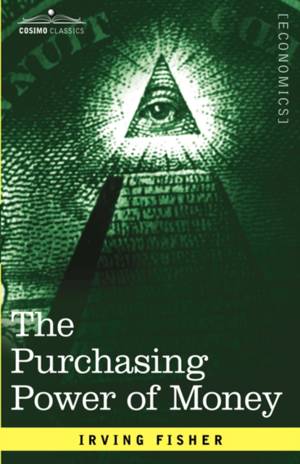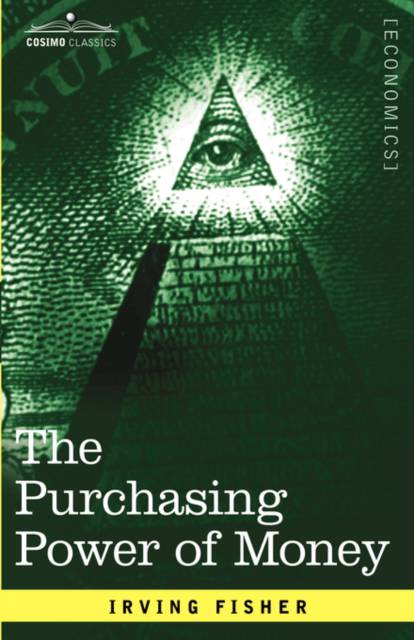
Bedankt voor het vertrouwen het afgelopen jaar! Om jou te bedanken bieden we GRATIS verzending (in België) aan op alles gedurende de hele maand januari.
- Afhalen na 1 uur in een winkel met voorraad
- In januari gratis thuislevering in België
- Ruim aanbod met 7 miljoen producten
Bedankt voor het vertrouwen het afgelopen jaar! Om jou te bedanken bieden we GRATIS verzending (in België) aan op alles gedurende de hele maand januari.
- Afhalen na 1 uur in een winkel met voorraad
- In januari gratis thuislevering in België
- Ruim aanbod met 7 miljoen producten
Zoeken
The Purchasing Power of Money
Its Determination and Relation to Credit Interest and Crises
Irving Fisher
Paperback | Engels
€ 36,95
+ 73 punten
Uitvoering
Omschrijving
Of all wealth, man himself is a species. Like his horses or his cattle, he is himself a material object, and like them, he is owned: for if slave, he is owned by another, and if free, by himself. But though human beings may be considered as wealth, human qualities, such as skill, intelligence, and inventiveness, are not wealth. Just as the hardness of steel is not wealth, but merely a quality of one particular kind of wealth, -hard steel, -so the skill of a workman is not wealth, but merely a quality of another particular kind of wealth-skilled workman. Similarly, intelligence is not wealth, but an intelligent man is wealth. -from "Chapter I: Primary Definitions" Perhaps America's first celebrated economist, Irving Fisher-for whom the Fisher equation, the Fisher hypothesis, and the Fisher separation theorem are named-staked an early claim to fame with his revival, in this 1912 book, of the "quantity theory of money." An important work of 20th-century economics, this work explores: - the circulation of money against goods - the various circulating media - the mystery of circulating credit - how a rise in prices generates a further rise - influence of foreign trade on the quantity of money - the problem of monetary reform - and much more. AUTHOR BIO: American economist IRVING FISHER (1867-1947) was professor of political economy at Yale University. Among his many books are Mathematical Investigations in the Theory of Value and Prices (1892), The Rate of Interest (1907), Why Is the Dollar Shrinking? A Study in the High Cost of Living (1914), and Booms and Depressions (1932).
Specificaties
Betrokkenen
- Auteur(s):
- Uitgeverij:
Inhoud
- Aantal bladzijden:
- 528
- Taal:
- Engels
Eigenschappen
- Productcode (EAN):
- 9781596056138
- Verschijningsdatum:
- 1/05/2006
- Uitvoering:
- Paperback
- Formaat:
- Trade paperback (VS)
- Afmetingen:
- 127 mm x 203 mm
- Gewicht:
- 566 g

Alleen bij Standaard Boekhandel
+ 73 punten op je klantenkaart van Standaard Boekhandel
Beoordelingen
We publiceren alleen reviews die voldoen aan de voorwaarden voor reviews. Bekijk onze voorwaarden voor reviews.









